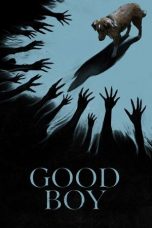American Psycho (2000) Review: A Dark Satire of Wealth and Identity
Introduction
American Psycho, directed by Mary Harron and released in 2000, is a provocative and controversial film adaptation of Bret Easton Ellis’s novel of the same name. Starring Christian Bale, Willem Dafoe, and Evangeline Lilly, the film is a satirical exploration of 1980s Wall Street culture and the intersection of identity and psychopathy. Known for its dark humor and graphic content, American Psycho continues to spark debate and discussion. This review will delve into the film’s plot, performances, direction, and provide information on where to stream, rent, or purchase the film in the United States.
Plot Summary
American Psycho follows Patrick Bateman (Christian Bale), a wealthy and successful investment banker living in Manhattan during the 1980s. Bateman presents a polished and successful exterior to the world, but beneath the surface, he harbors a dark and violent alter ego.
The film explores Bateman’s double life as he navigates his superficial social circle while indulging in increasingly violent and sadistic behavior. As Bateman’s psychopathic tendencies spiral out of control, his sense of reality becomes increasingly blurred, leading to a chilling and ambiguous conclusion.
The narrative delves into themes of identity, consumerism, and the emptiness of excessive wealth, using Bateman’s character as a vehicle for satire and social commentary.
Standout Performances
Christian Bale delivers a standout performance as Patrick Bateman, embodying the character’s chilling combination of charisma and cruelty. Bale’s portrayal captures Bateman’s meticulousness, detachment, and underlying menace, making his descent into madness both unsettling and compelling.
Willem Dafoe plays Detective Donald Kimball, the investigator who becomes suspicious of Bateman’s behavior. Dafoe’s performance adds tension and intrigue to the film, providing a counterbalance to Bateman’s character.
Evangeline Lilly appears as Courtney Lawrence, one of Bateman’s acquaintances. Although her role is relatively minor, Lilly’s performance contributes to the film’s depiction of the superficial and materialistic world in which Bateman operates.
Direction and Cinematic Style
Mary Harron’s direction in American Psycho is characterized by its sharp satire and dark humor. Harron effectively captures the excess and moral decay of 1980s Wall Street culture, using Bateman’s character to critique the era’s values and attitudes.
The film’s cinematography, by Harris Savides, enhances its unsettling atmosphere with a cold and clinical visual style. The use of color, framing, and lighting reflects the emptiness and alienation of Bateman’s world, contributing to the film’s overall impact.
Harron’s direction ensures that the film maintains its darkly comedic tone while exploring serious themes of identity and psychopathy. The film’s satirical edge is balanced with a nuanced portrayal of its central character, adding depth to its social commentary.
Themes of Identity, Consumerism, and Violence
American Psycho explores themes of identity, consumerism, and violence through its portrayal of Bateman’s character and his environment. The film critiques the superficiality and moral emptiness of the era’s consumer culture, using Bateman’s psychopathy as a reflection of the broader societal issues.
The theme of identity is central to the film, as Bateman’s public persona contrasts sharply with his private actions. The exploration of duality and self-perception adds complexity to Bateman’s character and highlights the disconnect between appearance and reality.
The film’s depiction of violence serves as both a critique of societal desensitization and a commentary on the dehumanizing effects of consumerism and excess. The graphic content is used to underscore the film’s satirical and critical perspective on 1980s culture.
Critical Acclaim and Reception
American Psycho received mixed reviews upon its release, with some critics praising its dark satire and Bale’s performance, while others were unsettled by its graphic content. Over time, the film has gained a cult following and is recognized for its sharp social commentary and distinctive style.
Critics have noted the film’s successful blending of satire and horror, as well as its provocative exploration of themes related to identity and consumerism. The film’s impact on popular culture and its continued relevance in discussions of societal values and psychology have cemented its place as a significant and controversial work.
Streaming and Rental/Purchase Options in the USA
For those interested in watching American Psycho, there are several streaming and rental/purchase options available in the United States:
- Streaming Services: American Psycho may be available on streaming platforms such as Amazon Prime Video and Hulu. Availability can vary, so checking current listings on these platforms is recommended.
- Rental/Purchase: If you prefer to rent or purchase the film, it can be found on digital platforms such as iTunes, Google Play, and Vudu. Rental prices typically range from $2.99 to $4.99, while purchase prices are around $9.99 to $14.99, depending on the platform and video quality.
Conclusion
American Psycho is a darkly satirical and provocative film that offers a critique of 1980s consumer culture and explores themes of identity and violence. With Christian Bale’s standout performance, Mary Harron’s sharp direction, and its incisive social commentary, the film remains a compelling and controversial work. Whether you are interested in psychological dramas or films that challenge societal norms, American Psycho provides a thought-provoking and memorable viewing experience.
Call to Action
If you haven’t yet experienced the unsettling and thought-provoking story of American Psycho, now is the perfect time to watch this influential film. Check streaming platforms like Amazon Prime Video or Hulu, or visit iTunes, Google Play, or Vudu to rent or purchase it. Discover why American Psycho continues to be a significant and provocative work in modern cinema.
















